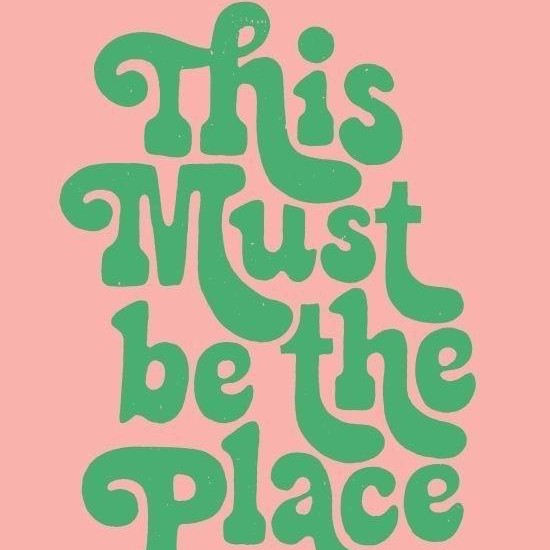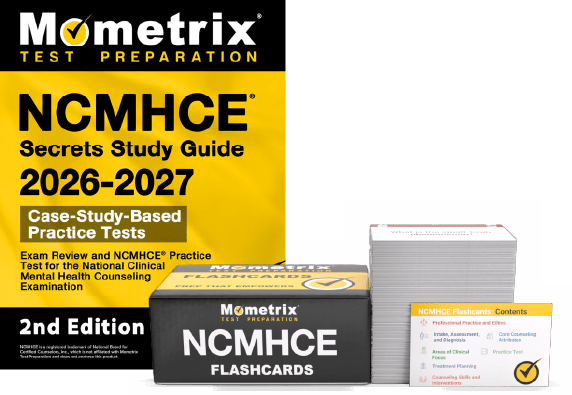If you need help studying for the NCMHCE® exam or just want some more information about what the exam is like, you’ve come to the right place.
Click below to take a free NCMHCE practice test!
How to Register
Exam Scores
Retaking the Exam
NCMHCE Online Course
What Test-Takers Are Saying
FAQs
What’s on the Exam?
First, let’s talk about the questions on the exam. There are somewhere between 130 and 150 questions total, but only 100 of the questions will count toward your score. Why is that?
The 30-50 unscored questions are added to the exam to determine if they’re good enough questions to add to future versions of the exam.
The trick is that you won’t have any way of knowing which questions are scored and which ones are unscored. They will appear just like the scored questions throughout the test.
The time limit for the exam is 225 minutes (3 hours and 45 minutes), but the entire testing session will last 255 minutes (4 hours and 15 minutes):
- Read and sign the confidentiality agreement: 5 minutes
- Complete the testing tutorial: 10 minutes
- Time limit for the exam: 225 minutes
- Scheduled break after the fifth case study: 15 minutes
The exam is split into the following five sections:
1. Professional Practice and Ethics
15% of the exam
- Maintaining proper administrative and clinical protocols
- Informed consent
- Client records and confidentiality (including electronic communication)
- Legal and ethical counseling practices
- Supervision
- Use of social media
- Advocating for clients and professional issues
2. Intake, Assessment, and Diagnosis
25% of the exam
- Conducting effective client intake interviews
- Utilizing mental status exams (MSEs)
- Assessing for substance abuse disorders
- Evaluating mental health functioning
- Understanding and applying diagnostic systems (e.g., DSM-5)
3. Treatment Planning
15% of the exam
- Developing evidence-based treatment plans
- Aligning interventions with client needs, developmental level, and cultural background
- Selecting appropriate counseling modalities
- Setting goals and objectives for therapy
4. Counseling Skills and Interventions
30% of the exam
- Establishing therapeutic rapport and alliance
- Active listening and attending skills
- Reflecting and reframing client statements
- Applying various counseling techniques
- Crisis intervention skills
5. Core Counseling Attributes
15% of the exam
- Empathy and empathic responding
- Cultural competence and sensitivity
- Respect and acceptance for diversity
- Non-judgmental stance and positive regard
- Conflict resolution skills
- Self-awareness and professional boundaries
How to Register
To get started with the registration process, you’ll need to create an account on the NBCC website. You’ll then be able to submit an application through this account.
Once your application is approved, you’ll be able to register for a testing appointment.
Exam Scores
Each counseling case has multiple decision points, where you choose actions related to Information Gathering (IG) and Decision-Making (DM). Every question you answer correctly gives you a positive point, while incorrect answers may result in negative or zero points. Both IG and DM sections have their own scores, and there is a minimum score you have to get for each one to pass the exam.
You should get your official score report within 8 weeks of testing.
Retaking the Exam
If you didn’t get a passing score on your first try, that’s okay! You can retake the test after the mandatory 30-day waiting period.
Online NCMHCE Prep Course
If you want to be fully prepared, Mometrix offers an online NCMHCE prep course. The course is designed to provide you with any and every resource you might want while studying. The NCMHCE course includes:
The NCMHCE prep course is designed to help any learner get everything they need to prepare for their NCMHCE exam. Click below to check it out!
What Test-Takers Are Saying
Don’t just take our word for it! See what real test-takers are saying about the NCMHCE:
“There are more tricky questions than there are not. The narratives, for example, would share that the client reported no SI but the question might be, ‘what is your next response for your client reporting SI?’ So…. it’s just weird. Another factor I noticed was that they compared OCD to OCP and MDD to persistent depressive disorder, so know these differences, because it might make a difference on a pass or fail!”

Alive-Anything4283
“My advice is view it as reading comprehension! Read the question and the narrative FULLY. If they mention specific language a client uses in a question, go back to the narrative and reread the context. A good way to eliminate answers is find the judgmental and/or irrelevant responses.”

Elegant_Ad_9774
“Know assessment measures, specifically the order of which ones to use for addiction assessments/treatment, and differences between depression measures. Also know the subtle differences between REBT, DBT, CBT, Gestalt, Narrative Therapy, ACT, SFBT, Cognitive Therapy, Family Systems Therapy/Structural Family Systems, etc.”

Pitiful_Bathroom_826
“A lot of the case studies had some sort of relational dynamic going on too, like partners/spouses/parents/bosses etc. 3-4 case studies had some type of LGBTQ person.”

4hir3
FAQs
What happens if you fail the NCMHCE 3 times?
For your first three attempts, if taken within two years, you only need to submit an application once. If you fail the exam three times, you’ll need to reapply before taking it again.
How long is the NCMHCE exam?
The exam is timed at 3 hours and 45 minutes.
How many questions are on the NCMHCE exam?
The exam contains between 130 and 150 questions in total.
How much does the NCMHCE exam cost?
The testing fee is $275.
NCMHCE is a registered trademark of National Board for Certified Counselors, Inc., which is not affiliated with Mometrix Test Preparation and does not endorse this page.



 NCMHCE Online Course
NCMHCE Online Course NCMHCE Study Guide
NCMHCE Study Guide NCMHCE Flashcards
NCMHCE Flashcards

